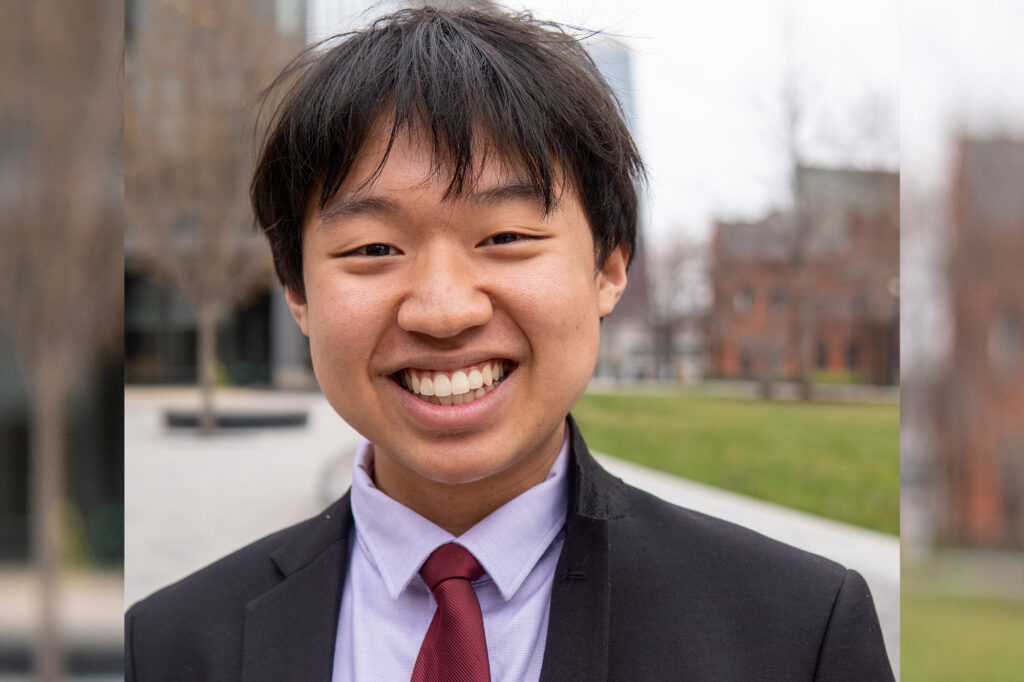
The University of Pennsylvania’s Joey Wu, a third-year student studying bioengineering and environmental science in the Vagelos Integrated Program in Energy Research (VIPER) program, has been named a 2024 Udall Scholar by the Udall Foundation. VIPER is a dual-degree program in the School of Engineering and Applied Science and School of Arts & Sciences.
Wu is among 55second-year and third-year students selected from 406 candidates nominated by 192colleges and universities nationwide. Scholars are recognized for leadership, public service, and commitment to issues related to the environment or to Native American nations. Each scholar will be awarded as much as $7,000.
A Taiwanese-American undergraduate scientist from Woodbury, Minnesota, Wu is the founder and international director of Waterroots, a nonprofit environmental education project that uses climate storytelling to combat water insecurity in more than 20 countries. Wu is a researcher in Penn Engineering’s McBride Lab, where he works as a plant specialist for a project that promotes environmental stability and sustainable agriculture. He is the deputy director of research for the nonprofit Climate Cardinals, a member of Penn’s Student Advisory Group for the Environment, and the North America representative for the Tunza Eco-Generation Ambassador program. Wu is a Clinton Global Initiative Scholar, a Duke Interfaith Climate Fellow, an IEEE Bio-X Scholar, a 2023 Millennium Fellow, and a 2024 UN ECOSOC Youth Delegate. In addition, he is a resident advisor in Penn’s Stouffer College House, as well as a Penn Engineering and a VIPER student ambassador.
Wu is the 10th student from Penn to be named a Udall Scholar since Congress established the foundation in 1992 to honor Morris and Stewart Udall for their impact on the nation’s environment, public lands, and natural resources and for their support of the rights and self-governance of American Indians and Alaska Natives.
Wu applied to the Udall Scholarship with the support of Penn’s Center for Undergraduate Research and Fellowships.
This story was originally posted in Penn Today.


